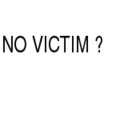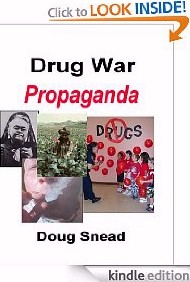[ topical analysis ] propaganda analysis
newsobserver.com : 24hour : nation
Wake schools to close early
Wake County schools will close an hour early today,
meaning all afterschool activities such as athletic
events are cancelled.
Board to weigh fate of struggling charters
Today the State Board of Education will consider
whether to close a charter because of its academic
shortcomings.
CIA can target citizens
American citizens working for al-Qaeda overseas can
legally be targeted and killed by the CIA under
President Bush's rules for the war on terrorism, U.S.
officials say.
New golf project planned
No one is calling northern Chatham County "Pinehurst
North" just yet.
Wintry weather expected today
Sleet and freezing rain are forecast for the Triangle,
and school systems and cities are readying plans.
Easley hears pleas before execution
North Carolina is preparing to execute its first
murderer in more than a year.
A tale of two halves
Illinois, inspired by its raucous fans, dismantles
previously unbeaten UNC in the second half.
Peppers sacked for year
Panthers rookie withdraws appeal.
Canes finally in tune in Music City
With its first win in Nashville, Carolina looking
better than a year ago.
Digital delights
Falling prices bring popular gadgets within reach of
more people.
Recovery plan pales with revenue
Anemia online: AOL expects ads, commerce to drop 40% to
50%.
Wednesday, December 4, 2002 10:09AM EST
New programs aimed at preventing youth drug abuse
By ROSS ATKIN, CHRISTIAN SCIENCE MONITOR
(CSM) - A group of teenagers from Savio Preparatory
High School descends on Government Center Plaza in
Boston wearing yellow T-shirts and brandishing bells,
noisemakers and giant alarm clocks. They've come to
deliver a message to commuters heading for the subway
in the evening rush hour. "Wake up, parents of Boston,"
they shout. "Wake up to the risks of marijuana."
The message, printed on pads of sticky notes they
distribute, isn't new, but the method of delivering it
is. This rally by Students Against Destructive
Decisions (SADD) is just one example of how prevention
programs across the United States are trying new
tactics or revamping established approaches in an
effort to keep young people off drugs and alcohol.
"I think many people are trying to educate about the
dangers (of substance abuse), but the message isn't
always getting across," says Maria Cardullo, a biology
teacher and adviser to the Savio Prep SADD chapter.
That's exactly what prevention experts are concerned
about: They want to avoid the "generational forgetting"
that can happen when society lets down its guard.
Drug use among young people has been a problem since
the 1960s. It peaked in 1981, when 66 percent of
American youths had tried illicit substances. The rate
gradually fell to 41 percent before rising again.
Now, according to 2001 statistics, 54 percent of
students have tried drugs by the time they finish high
school. Eighty percent say that they have consumed
alcohol, according to the University of Michigan's
Institute for Social Research.
Perhaps more alarming is the fact that children start
experimenting with alcohol at younger and younger ages.
By age 12, 20 percent of students have tried alcohol.
That figure rises to 50 percent by the time they've
reached eighth grade.
Drug use has also shifted geographically. In the past,
substance abuse was primarily a problem in cities. Now,
students in rural areas are much more likely to use
drugs than their urban counterparts, according to the
National Center on Addiction and Substance Abuse at
Columbia University in New York.
While the field of prevention science has existed only
30 years or so, researchers believe that they have
already learned some important lessons.
"We continue to understand more about the pathways into
drug use and how important it is to intervene early, to
interrupt the trajectory that leads into drug usage,"
says Wilson Compton, director of prevention research at
the National Institute on Drug Abuse.
Compton and other experts agree that more research is
needed, but they have identified four prevention
fundamentals:
1. Education must be ongoing and span a child's entire
school career.
2. It should be interactive, age-specific,
family-focused, and target the particular drugs that
are available to students. Whatever drug issues a
community may be struggling with, prevention experts
stress the need to make the solution fit the clientele.
The first step is learning how to communicate in ways
that young people will respond to.
3. Besides classroom programs that provide teens with
scientific information about drugs, programs should
teach skills that increase self-confidence and show
youngsters how to refuse drugs and alcohol.
4. Marijuana should not be viewed as less threatening
than drugs such as Ecstasy or cocaine. Today's
marijuana is more potent than it was in the late 1970s
and early '80s, and it remains the most widely used
drug by teens. (Sixty percent of teens in
drug-treatment programs are hooked on pot.) It may also
be a "gateway" that leads to experimentation with other
substances.
But beyond these fundamentals, there is still much to
be learned.
For the past 16 years, DARE (Drug Abuse Resistance
Education) has been in the forefront of prevention
efforts.
Begun in Los Angeles in 1986, the program uses
specially trained police officers to teach in 80
percent of the country's school districts. The
curriculum calls for once-a-week visits over 17 weeks,
usually to fifth- or sixth-grade classes.
While DARE is the most far-reaching program, it has
been criticized by some observers for not producing
noticeable differences in teen behavior. So it is
changing with the times in an effort to better serve
its audience.
A new curriculum, developed after an extensive study by
researchers at the University of Akron, has been tested
with seventh-graders in half a dozen cities. The
revised DARE, which is less lecture-oriented and offers
greater interactivity, has proved more effective in
teaching teens how to decline offers to use drugs.
Another change is that the program now involves
teachers working alongside police, and provides for
follow-up reinforcement when students reach high
school.
Drug Strategies Inc., a nonprofit research institute
that annually grades prevention programs, gives the
current DARE program a "B." But it awards higher marks
to newer, more innovative approaches.
Receiving an "A" for its work with middle-schoolers is
Project Northland, sponsored by Minnesota's Hazelden
Foundation.
Using research conducted in a part of Minnesota that
led the nation in alcohol-related fatalities, the
program targets students in grades 6 to 8. After three
years of participation in Project Northland, monthly
drinking among eighth-graders was 20 percent lower than
for students in a district that didn't participate in
the program, and weekly drinking was 30 percent less.
Project Northland involves group discussions, role
playing, games, problem-solving and projects tackled by
small groups.
They've found that same-age peers, selected by the
students, are more successful than teachers in
conveying "social information concerning alcohol use."
It also has a home project, in which 90 percent of
parents have participated.
The program is now introducing a six-week curriculum
called Class Action, which is aimed at high schoolers.
In it, students will learn the consequences of underage
drinking by consulting experts as they represent a
"plaintiff" in a hypothetical court case.
Keys to Change, a new prevention program developed by
James Prochaska, a professor of clinical and health
psychology at the University of Rhode Island, takes
advantage of students' enthusiasm for computers.
Prochaska, who has received an Innovators Award from
the Robert Wood Johnson Foundation, developed a
multimedia program that uses laptop computers to coach
teens in how to resist high-risk behavior such as drug
use.
While this strategy, being tried in the health classes
of 14 Rhode Island high schools, might seem impersonal,
it can be tailored to individual students who haven't
begun drug use or are in the early stages of using
illegal substances. It's highly confidential (not even
classmates know where other students are in the
program), and the teens can be totally open in their
interactions, not worrying about being judged or
evaluated by another person.
One section teaches generic strategies for changing
behavior, and the others target drug and alcohol use.
Students work on the computer program only six times
over two years, which allows them plenty of time to
change their behavior in stages.
"The whole prevention field has evolved from a 'do what
feels good' approach to assessing community risks and
protective factors to build programs based on these,"
says Ruth Sanchez-Way of the U.S. Substance Abuse and
Mental Health Services Administration. In other words,
when trying to help young people resist the temptation
to use drugs and alcohol, one approach isn't going to
work in every community or with every child.
What may work well for many youths, however, are
programs that teach self-management skills and
strategies that will help them avoid risky behaviors.
One of the leading examples of this approach is
LifeSkills Training, a school-based program developed
by Gilbert Botvin of the Institute for Prevention
Research of the Weill Medical College of Cornell
University in New York.
It includes lessons on everything from resisting drugs
to relaxation skills. "Once kids have been able to use
a skill effectively, two things happen," Botvin says.
"They feel more confident and empowered, (and) so
they're better able to handle themselves in situations
when they're asked to smoke, drink, or use drugs."
This ability is especially needed now, says White House
drug czar John Walters, because of the presence of
aggressive, pro-drug peer groups in many schools. "It's
not just a small fringe group in some schools, but some
of the best and most prominent students," he says.
"Their opinions and attitudes are fed by the larger
culture, by the Internet, by drug legalization
campaigns that suggest that societal standards against
drug use are heavy-handed, unnecessary."
Other students, therefore, must feel empowered to step
forward and say, "This isn't right, this isn't
healthy," Walters says.
Students are receptive to this message, says Cardullo,
the teacher at East Boston's Savio Prep, who has been
teaching drug education for 26 years.
Many of these students, such as Jason Javeli, a
freshman at the school, are active in SADD chapters.
Why? The reason, he says, is simple: He doesn't want to
jeopardize a bright future, including college plans, by
using drugs, so he doesn't hesitate to share what he's
learned of substance abuse risks.
"I have friends who use drugs, and it's uncomfortable
to go to their house because their parents don't trust
them anymore," he says. "I'd never want to lose the
trust of my parents."
That is a good thing, according to experts. In fact, it
can be a major weapon in the drug war, says Stephen
Wallace, SADD's national chairman and chief executive
officer. "The fact is, parents have a tremendous
influence on the decisions their teens make."
Increasingly, prevention experts are making use of
parental influence. This is why a major part of the
current ad campaign by the National Youth Anti-Drug
Media Campaign is directed toward parents. The message
is simple: Parents should resolve to set standards for
their teenagers and stick to them.
Research shows, after all, that kids who learn at home
about the dangers of drugs are half as likely to try or
continue to use drugs as students who don't get
guidance or information at home. Also, when drugs are
avoided in the formative years, they may never present
a challenge thereafter.
What's important to remember, says Howard Simon of the
Partnership for a Drug-Free America, is that in spite
of eye-rolling and door-slamming, teens don't want to
cross their parents, and they consider disappointing
Mom and Dad among the biggest risks in using drugs.
But the ad campaign also has a second target: teens.
In the past, ads were more focused on 12- and
13-year-olds, in the belief that it was best to catch
them early.
Now, ads target mid- to older teens, who may be under
more social pressure to join the crowd. This allows for
more forceful messages, says Walters.
Reaching this group is critical, because many young
people begin to try drugs and alcohol between seventh
and eighth grades, according to a new SADD-Liberty
Mutual "Teens Today" survey. And marijuana use by
eighth graders has doubled in the past 10 years.
But knowing who to target is only the first step.
Walters says it's important to avoid the over-the-top
scare tactics of an earlier era, since these sometimes
didn't square with what teenagers observed in their own
lives or in the lives of others.
"We are continuing to explain the dangers," he says,
"but if you make statements that are distortions, they
don't work."
One big challenge, he adds, is the low cost and ready
access of illicit drugs. To combat this, the federal
government plans a major escalation in efforts to
disrupt the drug trade.
Walters says the government will target the
vulnerabilities of major trafficking networks - how
they move money, transport their products, communicate
and manufacture and refine drugs.
Previous administrations have also tried to wipe out
the drug trade - with limited results. While hoping
that the government is successful this time, experts
say that the best solution to the problem is to end
demand, one student at a time.
tools
printer friendly version
send this story to a friend
subscribe to our e-mail lists
sponsored by:Hilton RIverside
shopping
shopping.triangle.com
search before you shop
find coupons and sales before you hit the stores!
keyword:
we're hiring
jobs.triangle.com
Advantage Professionals
MATRIX Resources
News & Observer
Olsten Staffing Services
Go To Section Home 24 Hour News News -- Triangle -- NC
-- Columnists -- North Raleigh News -- Q -- NC News (24
Hour) -- Nation (24 Hour) -- World (24 Hour) --
Politics (24 Hour) Editorials -- Editorials -- Letters
-- Columnists -- Opinions (24 Hour) Business -- RTP/NC
-- Technology -- Columnists -- NC Business (24 Hour) --
Business (24 Hour) -- Technology (24 Hour) -- Stocks
Sports -- College -- Preps -- Professional --
Columnists -- NC Sports (24 Hour) -- Sports (24 Hour)
Features -- A & E -- Home -- Life -- Sunday Journal --
Travel -- What's Up -- Columnists -- Science (24 Hour)
-- Entertainment (24 Hour) Help -- Searches -- Contact
Us -- Tools -- Site Maps -- FAQ -- Policies Classified
-- Apartments -- Autos -- Jobs -- Personals -- Travel
-- Weddings Shopping
(c) Copyright 2002, The News & Observer Publishing
Company. All material found on triangle.com (including
newsobserver.com, carynews.com, chapelhillnews.com,
knightdaletimes.com smithfieldherald.com,
wendellclarion.com and zebulonrecord.com) is
copyrighted The News & Observer Publishing Company and
associated news services. No material may be reproduced
or reused without explicit permission from The News &
Observer Publishing Company, Raleigh, North Carolina.
The News & Observer Publishing Company is owned by The
McClatchy Company.
I thought this page was interesting because:
| concept | evidence | hits | link |
|---|
| | $drug_related
[news] [concept] | $prohibition $prohibition_agency $illegal_drugs $drug_ngo | | |
 | $drugwar_propaganda
[news] [concept] | "Anti-Drug Media Campaign" "National Youth Anti-Drug Media Campaign" "Media Campaign" "rally" "campaigns" "campaign" $propaganda_theme1 $propaganda_theme2 $propaganda_theme3 $propaganda_theme4 $propaganda_theme5 $propaganda_theme6 $propaganda_theme7 $propaganda_theme8 | 8 | http://drugwarpropaganda.gotdns.org, http://www.drugwar.com/propaganda.shtm, http://www.drugwar.com/shamindex.shtm |
 | $propaganda_theme1 55%
[news] [concept] | "terrorism" | 2 | http://drugwarpropaganda.gotdns.org/t.cgi?1 |
 | $propaganda_theme2 60%
[news] [concept] | "murderer" "Addiction" "dangers" | 5 | http://drugwarpropaganda.gotdns.org/t.cgi?2 |
 | $propaganda_theme3 55%
[news] [concept] | "society" "community" | 4 | http://drugwarpropaganda.gotdns.org/t.cgi?3 |
 | $propaganda_theme4
[news] [concept] | "substance abuse" "gateway" "drug abuse" "Drug use" "using drugs" "leads to" "leads" "leading" "marijuana use" | 25 | http://drugwarpropaganda.gotdns.org/t.cgi?4 |
 | $propaganda_theme5 70%
[news] [concept] | "children" "child" "kids" "teens" "teenagers" "youth" "youths" "-graders" "young people" | 32 | http://drugwarpropaganda.gotdns.org/t.cgi?5 |
 | $propaganda_theme6 90%
[news] [concept] | "drug war" | 1 | http://drugwarpropaganda.gotdns.org/t.cgi?6 |
 | $propaganda_theme7
[news] [concept] | "legalization" "Drug-Free" $legalization | 2 | http://drugwarpropaganda.gotdns.org/t.cgi?7 |
 | $propaganda_theme8 95%
[news] [concept] | "pro-drug" | 1 | http://drugwarpropaganda.gotdns.org/t.cgi?8 |
| | $illegal_drugs
[news] [concept] | $cannabis $hallucinogen $various_illegal_drugs $stimulant | | |
| | $drugs 95%
[news] [concept] | $various_drugs | | |
| | $drug_ngo
[news] [concept] | $prohibitionist_ngo | | |
 | $prohibition_agency
[news] [concept] | "police" "drug czar" "John Walters" "Walters" "National Institute on Drug Abuse" "Substance Abuse and Mental Health Services Administration" "DARE" "Drug Abuse Resistance Education" | 16 | http://www.mapinc.org/campaign.htm, http://www.druglibrary.org/schaffer/dea/ind..., http://www.mapinc.org/walters.htm |
| | $prohibitionist_ngo
[news] [concept] | "National Center on Addiction and Substance Abuse" "Partnership for a Drug-Free America" "Robert Wood Johnson Foundation" | 3 | |
| | $legalization
[news] [concept] | "legalization" "drug legalization" | 3 | http://www.mapinc.org/decrim.htm |
| | $prohibition
[news] [concept] | "Anti-Drug" "Drug-Free" | 2 | http://www.wctu.org/, http://www.aclu.org/library/pbp19.html, http://www.cedro-uva.org/lib/levine.secret...., http://www.druglibrary.org/schaffer/LIBRARY..., http://www.druglibrary.org/special/friedman... |
 | $hallucinogen 60%
[news] [concept] | "Ecstasy" | 1 | http://www.mapinc.org/hallucinogens.htm, http://www.mapinc.org/mdma.htm |
| | $stimulant
[news] [concept] | $cocaine | | http://www.druglibrary.org/schaffer/Library... |
 | $cocaine
[news] [concept] | "cocaine" | 1 | http://www.mapinc.org/coke.htm |
 | $cannabis
[news] [concept] | "marijuana" "pot" | 5 | http://www.mpp.org, http://www.norml.org, http://www.mapinc.org/pot.htm |
| | $alcohol
[news] [concept] | "alcohol" "alcohol-related" | 11 | |
| | $various_drugs 95%
[news] [concept] | "drug" "drugs" | 65 | |
| | $various_illegal_drugs
[news] [concept] | "illicit drugs" "drug issues" "drug abuse" "drug war" | 7 | http://www.mapinc.org, http://www.drugwarfacts.org, http://www.druglibrary.org/schaffer/dea/pub... |
as .txt file
| 




